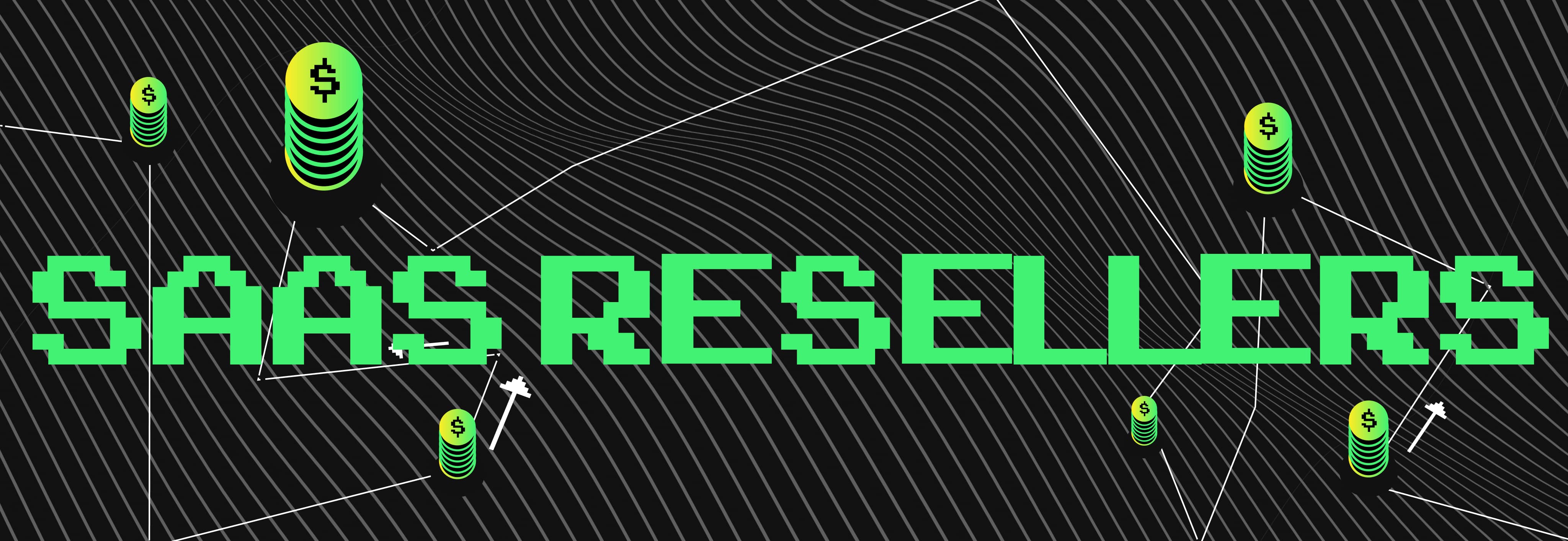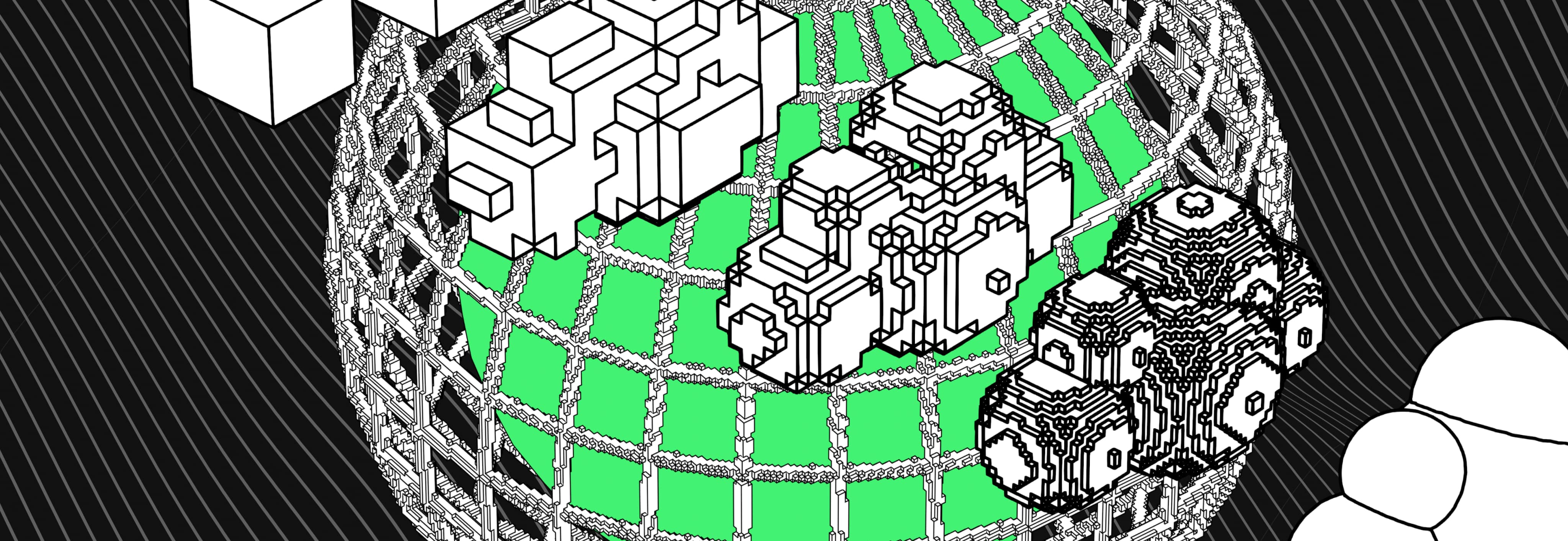In the ever-evolving world of technology, Software as a Service (SaaS) has gained significant popularity due to its flexibility and cost-effectiveness. As its demand continues to grow, SaaS resellers have emerged as crucial players in the market. Although only 20% of SaaS companies deploy resellers, they are amongst the most successful ones on the market.
SaaS reselling is a challenge worth exploring. Although traditional software vendors are well-entrenched in the market, innovative companies are also making their presence felt.
Knowing the importance of resellers, this article explores how they sell SaaS to meet customers' needs. It also discusses agreements and reseller models, so read it until the end.
Who are SaaS resellers?
SaaS resellers are individuals or companies specializing in selling software-as-a-service solutions developed by software providers. They act as intermediaries, connecting customers with the software products they demand. Resellers can range from independent consultants to dedicated firms.
They possess in-depth knowledge of various SaaS offerings and understand the requirements of different industries. Resellers typically establish partnerships with software providers, gaining access to their products at wholesale or discounted rates. They sell these solutions to end-users, providing value-added services such as customization, integration, training, and support.
SaaS resellers offer a convenient one-stop-shop experience for customers, assuring best-fit solutions for their clients' needs.

Understanding SaaS Reseller Business Models
Referral model
The referral model is a straightforward SaaS model where resellers earn a commission or fee by referring customers to the SaaS provider. Resellers act as intermediaries between the SaaS provider and potential customers, leveraging their network and industry expertise to identify and refer leads.
This model typically requires minimal investment and is suitable for individuals or small businesses seeking passive income.
White label model
In the white-label SaaS model, resellers sell the products under their brand name. They purchase the SaaS solution from the provider at a wholesale price and align it with their brand identity. White-label SaaS resellers are responsible for marketing, customer support, and billing, while the SaaS provider handles product development and maintenance.
The SaaS white label reseller model allows resellers to establish their brand presence and tailor the product to their target market's needs.
Value-added reseller (VAR) model
The value-added reseller (VAR) model involves SaaS distributors adding value to the product by bundling it with additional services or features. Resellers act as consultants, identifying customer requirements and customizing the SaaS solution to meet their needs. They may integrate the SaaS product with other software, provide training and implementation services, or offer ongoing support.
VARs differentiate themselves by offering a comprehensive solution beyond the basic SaaS product, providing added value to customers.
Vertical market model
In the vertical market model, resellers focus on specific industries or niche markets and tailor the SaaS product to meet their requirements. They develop expertise and domain knowledge in their chosen vertical, positioning themselves as industry experts. They understand customers' challenges and pain points within that market and customize the SaaS solution to address them.
This model allows resellers to target a specific audience while following industry regulations. For instance, health industry professionals must adhere to HIPAA and HITECH.
Managed service provider (MSP) model
The managed service provider (MSP) model involves resellers offering end-to-end support services for the SaaS solution. Resellers act as a one-stop solution for customers, handling implementation, customization, monitoring, and support. They ensure that the SaaS product functions optimally and meets the customer's requirements.
MSPs may also provide data migration, security, and compliance management. It is suitable for customers who prefer to outsource the management of their SaaS solution to a trusted partner.
Integration specialist model
In the integration specialist model, resellers focus on seamlessly integrating the SaaS solution with other existing software used by customers. They have expertise in understanding various software platforms and APIs, allowing them to integrate the SaaS product into the customer's tech stack effectively. Resellers provide consultation, implementation, and ongoing support to ensure smooth system integration and data flow.
This model is valuable for customers who require a cohesive and integrated software ecosystem. Resellers can position themselves as experts in software integration, delivering enhanced value to their clients.
Custom development model
The Custom Development Model allows resellers to go beyond standard features and offer customizations and bespoke solutions to customers. They work closely with clients to understand their unique needs and develop tailored functionalities within the SaaS product. Resellers often have in-house development teams or partnerships with software developers to implement these customizations.
It allows resellers to cater to customer's specific requirements, providing a highly personalized and differentiated solution. Resellers can address niche market segments by offering custom development services and become trusted providers of tailored SaaS solutions.

How do you create the best SaaS reseller programs?
Below are some critical steps for creating robust SaaS reseller programs.
Reseller onboarding
The first step in a SaaS reseller program is the onboarding process. Resellers interested in joining the program typically apply through an application or registration process. The SaaS provider reviews the applications and selects resellers based on their qualifications, expertise, market reach, and alignment with the target customer base.
Once selected, resellers are onboarded and sign agreements that outline their responsibilities, commission structures, and other program-specific terms.
Product training and support
Resellers receive product training from the SaaS provider to sell the SaaS solution effectively. It equips them to understand the product's features, benefits, use cases, and competitive advantages. They learn how to position the product in the market and address customer inquiries.
Additionally, resellers receive ongoing support from the SaaS provider, including access to documentation, marketing collateral, and technical assistance to assist them in their sales efforts.
Marketing and lead generation
Resellers are responsible for marketing and lead-generation activities to drive customer interest and generate sales. They employ social media advertising, email campaigns, and SEO to create awareness about the SaaS solution.
SaaS resellers may also participate in industry events to showcase the product to potential customers. They leverage their existing networks and industry expertise to identify leads and create a pipeline of potential customers for the SaaS solution.
Sales and customer acquisition
Once leads are generated, resellers focus on converting them into customers. They engage in consultative selling, understanding customer needs and aligning the SaaS solution with their requirements. Resellers may offer demonstrations, trials, or proofs-of-concept to showcase the product's value.
They negotiate pricing, handle contract agreements, and facilitate the customer onboarding process. Resellers act as customers' primary point of contact, providing ongoing support throughout the customer lifecycle.
Revenue generation and commission
Resellers earn revenue through commissions or profit margins on each successful sale. The reseller agreement defines the commission structure and varies based on the program's terms.
Commissions can be based on a percentage of the sale value or a fixed amount per customer, received monthly or quarterly, depending on the program's payout schedule. Accurate tracking of sales and customer referrals is crucial to ensure fair compensation for resellers.
Relationship management
Building a solid relationship between the SaaS provider and resellers is vital for the program's success. The provider invests in regular communication and collaboration with resellers, updating them on product enhancements, new features, and market trends. They offer ongoing training, support, and sales enablement resources to empower resellers to achieve their sales targets.
A SaaS reseller program enables companies to expand their portfolio while allowing the provider to increase its customer base.

How do SaaS reseller agreements work?
A SaaS agreement for resellers involves a vendor allowing the reseller to sell its services to a third party.
There are two main ways in which reseller agreements are arranged:
- Top down arrangements
- Bottom up arrangements
Let's look at them in detail here.
Top down arrangements
In a top-down agreement, the requirements about how a reseller can deal with customers are clearly outlined in a schedule. These arrangements are better suited when the reseller is engaging SMEs. A top-down agreement also includes the following standard compliance provisions:
- Information security
- Anti-bribery
- Record keeping
- Audit
Bottom up arrangements
Bottom-up arrangements are a direct result of negotiations between the reseller and customers. It can cost the vendor and the reseller a lot and has an administrative burden, too. However, they could be indispensable when dealing with large corporate customers.
Why is a reseller agreement important?
A reseller agreement is crucial because of the following reasons:
- The vendor or the reseller doesn't have viable sales channels or contacts in the customer's country/region.
- They have no physical presence in the country and cannot offer customer support in the local language.
- SaaS terms and conditions are not perfectly compliant with local laws and regulations.
Conclusion
In conclusion, SaaS resellers play a crucial role by bridging the gap between software providers and customers. If you're one of them and want to partner with a reputable name, Apptension is the best choice.
We are a leading SaaS provider deploying our exceptional talent in technology, design, and product management to provide world-class software to its clients. That's not all; we can provide step-by-step guidance about launching your products. We can also connect with leading SaaS brands and facilitate all the communication and agreements so that you can scale up your reselling business. Reach out to us and build the company you have always dreamed of!
